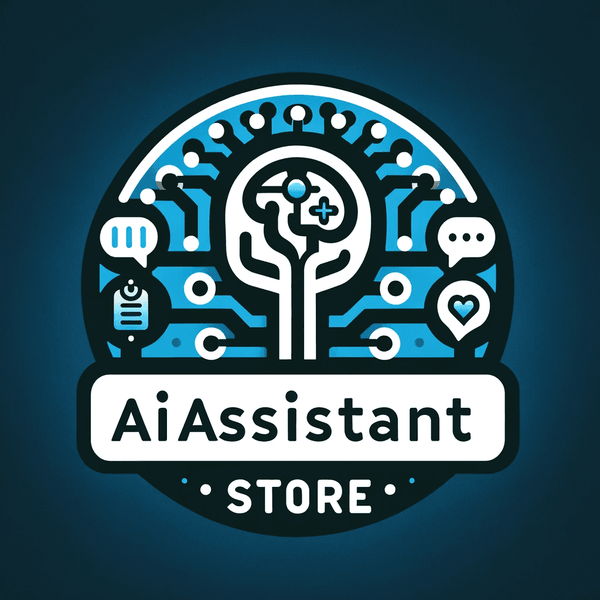This is one of those nagging, slightly unsettling questions that creeps into late-night Slack chats and coffee-fueled debates among coders, founders, and honestly anyone who’s ever stared down a mysterious bug. On one side, AI tools keep getting quicker, sharper, almost uncanny in how they spit out code. On the other side, software engineering was never just about hammering out syntax. Let’s peel it back - without sliding into the usual dystopian “machines will take over” sci-fi script.
Articles you may like to read after this one:
🔗 Top AI tools for software testing
Discover AI-powered testing tools making QA smarter and faster.
🔗 How to become an AI engineer
Step-by-step guide to building a successful career in AI.
🔗 Best no-code AI tools
Easily create AI solutions without coding using top platforms.
Software Engineers Are Important 🧠✨
Underneath all the keyboards and stack traces, engineering has always been problem-solving, creativity, and system-level judgment. Sure, AI can crank out snippets or even scaffold an app in seconds, but real engineers bring things machines don’t quite touch:
-
The ability to grasp messy context.
-
Making trade-offs (speed vs. cost vs. security… always a juggling act).
-
Working with people, not just code.
-
Catching the bizarre edge cases that don’t fit a neat pattern.
Think of AI as a ridiculously fast, tireless intern. Helpful? Yes. Steering the architecture? No.
Imagine this: a growth team wants a feature that ties into pricing rules, old billing logic, and rate limits. An AI can draft parts of it, but deciding where to place the logic, what to retire, and how not to wreck invoices mid-migration - that judgment call belongs to a human. That’s the difference.
What the Data Really Shows 📊
The numbers are striking. In structured studies, developers using GitHub Copilot finished tasks ~55% quicker than those coding solo [1]. Wider field reports? Sometimes up to 2× faster with gen-AI baked into workflows [2]. Adoption is massive too: 84% of devs either use or plan to use AI tools, and over half of professionals use them daily [3].
But there’s a wrinkle. Peer-reviewed work suggests coders with AI assistance were more likely to write insecure code - and often walked away overconfident about it [5]. That’s exactly why frameworks stress guardrails: oversight, checks, human reviews, especially in sensitive domains [4].
Quick Side-by-Side: AI vs. Engineers
| Factor | AI Tools 🛠️ | Software Engineers 👩💻👨💻 | Why It Matters |
|---|---|---|---|
| Speed | Lightning at cranking snippets [1][2] | Slower, more careful | Raw speed isn’t the prize |
| Creativity | Bound by its training data | Can actually invent | Innovation isn’t pattern-copy |
| Debugging | Suggests surface fixes | Understands why it broke | Root cause matters |
| Collaboration | Solo operator | Teaches, negotiates, communicates | Software = teamwork |
| Cost 💵 | Cheap per task | Expensive (salary + benefits) | Low cost ≠ better outcome |
| Reliability | Hallucinates, risky security [5] | Trust grows with experience | Safety and trust count |
| Compliance | Needs audits & oversight [4] | Designs for rules & audits | Non-negotiable in many fields |
The Surge of AI Coding Sidekicks 🚀
Tools like Copilot and LLM-powered IDEs are reshaping workflows. They:
-
Draft boilerplate instantly.
-
Offer refactoring hints.
-
Explain APIs you’ve never touched.
-
Even spit out tests (sometimes flaky, sometimes solid).
The twist? Junior-tier tasks are now trivialized. That shifts how beginners learn. Grinding through endless loops is less relevant. Smarter path: let AI draft, then verify: write assertions, run linters, test aggressively, and review for sneaky security flaws before merging [5].
Why AI Still Isn’t a Full Replacement
Let’s be blunt: AI is powerful but also… naive. It doesn’t have:
-
Intuition - catching nonsense requirements.
-
Ethics - weighing fairness, bias, risk.
-
Context - knowing why a feature should or shouldn’t exist.
For mission-critical software - finance, health, aerospace - you don’t gamble on a black-box system. Frameworks make it clear: humans stay accountable, from testing through monitoring [4].
The “Middle-Out” Effect on Jobs 📉📈
AI hits hardest in the middle of the skill ladder:
-
Entry-level devs: Vulnerable - basic coding gets automated. Growth path? Testing, tooling, data checks, security reviews.
-
Senior engineers/architects: Safer - owning design, leadership, complexity, and orchestrating AI.
-
Niche specialists: Safer still - security, embedded systems, ML infra, things where domain quirks matter.
Think calculators: they didn’t wipe out math. They shifted which skills became indispensable.
Human Traits AI Trips Over
A few engineer superpowers AI still lacks:
-
Wrestling with gnarly, spaghetti-legacy code.
-
Reading user frustration and factoring empathy into design.
-
Navigating office politics and client negotiations.
-
Adapting to paradigms that aren’t even invented yet.
Ironically, the human stuff is becoming the sharpest advantage.
How to Keep Your Career Future-Proof 🔧
-
Orchestrate, don’t compete: Treat AI like a co-worker.
-
Double down on review: Threat modeling, specs-as-tests, observability.
-
Learn domain depth: Payments, health, aerospace, climate - context is everything.
-
Build a personal toolkit: Linters, fuzzers, typed APIs, reproducible builds.
-
Document decisions: ADRs and checklists keep AI changes traceable [4].
The Likely Future: Collaboration, Not Replacement 👫🤖
The real picture isn’t “AI vs. engineers.” It’s AI with engineers. Those who lean in will move faster, think bigger, and offload grunt work. Those who resist risk falling behind.
Reality check:
-
Routine code → AI.
-
Strategy + critical calls → Humans.
-
Best results → AI-augmented engineers [1][2][3].
Wrapping It Up 📝
So, will engineers get replaced? No. Their jobs will mutate. It’s less “end of coding” and more “coding is evolving.” The winners will be the ones who learn to conduct AI, not battle it.
It’s a new superpower, not a pink slip.
References
[1] GitHub. “Research: quantifying GitHub Copilot’s impact on developer productivity and happiness.” (2022). https://github.blog/news-insights/research/research-quantifying-github-copilots-impact-on-developer-productivity-and-happiness/
[2] McKinsey & Company. “Unleashing developer productivity with generative AI.” (June 27, 2023). https://www.mckinsey.com/capabilities/mckinsey-digital/our-insights/unleashing-developer-productivity-with-generative-ai
[3] Stack Overflow. “2025 Developer Survey — AI.” (2025). https://survey.stackoverflow.co/2025/ai
[4] NIST. “AI Risk Management Framework (AI RMF).” (2023–). https://www.nist.gov/itl/ai-risk-management-framework
[5] Perry, N., Srivastava, M., Kumar, D., & Boneh, D. “Do Users Write More Insecure Code with AI Assistants?” ACM CCS (2023). https://dl.acm.org/doi/10.1145/3576915.3623157

